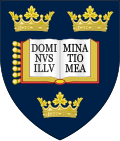| # | Portrait [29] | Professor of Poetry | Took office | Left office | Career | Notes |
|---|
| 1 |  | Joseph Trapp
(1679–1747) | 1708 | 1718 | - English High Church Anglican clergyman, academic, poet (occasional verse), dramatist, and pamphleteer, described as "fond of reciting the works of Shakespeare in Latin"
| [30] |
| 2 | — | Thomas Warton the Elder
(c. 1688–1745) | 1718 | 1726 | | [31] |
| 3 | 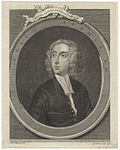 | Joseph Spence
(1699–1768) | 1728 | 1738 | | |
| 4 | — | John Whitfield | 1738 | 1741 | | |
| 5 |  | Robert Lowth
(1710–1787) | 1741 | 1751 | - Author of an influential textbook on English grammar, poet, and Anglican clergyman; appointed Bishop of Oxford and Bishop of London, dean of the chapel royal and privy counsellor; declined to become Archbishop of Canterbury in 1783 owing to failing health
| |
| 6 | — | William Hawkins
(1722–1801) | 1751 | 1756 | - English clergyman, author of sermons, poet and dramatist
| |
| 7 |  | Thomas Warton the Younger
(1728–1790) | 1757 | 1766 | | [31] |
| 8 | — | Benjamin Wheeler | 1766 | 1776 | | |
| 9 |  | John Randolph
(1749–1813) | 1776 | 1783 | | |
| 10 | — | Robert Holmes
(1748–1805) | 1783 | 1793 | - English clergyman, Dean of Winchester, and biblical scholar known for textual studies of the Septuagint
| |
| 11 |  | James Hurdis
(1763–1801) | 1793 | 1801 | | |
| 12 |  | Edward Copleston
(1776–1849) | 1802 | 1812 | | |
| 13 | — | John Josias Conybeare
(1779–1824) | 1812 | 1821 | - English clergyman, geologist; appointed Rawlinsonian Professor of Anglo-Saxon (1808–1812), known for translations of Beowulf in English and Latin verse (1814), posthumously published Illustrations of Anglo-Saxon Poetry (1826)
| |
| 14 |  | Henry Hart Milman
(1791–1868) | 1821 | 1831 | - English historian, dramatist, and clergyman, fellow of Brasenose College, Oxford recipient of the Newdigate Prize (1812), English essay prize for Comparative Estimate of Sculpture and Painting (1816); appointed Dean of St Paul's; authored lyrics for Palm Sunday hymn Ride on, ride on, in majesty!
| |
| 15 | 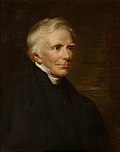 | John Keble
(1792–1866) | 1831 | 1841 | | |
| 16 | — | James Garbett
(1802–1879) | 1842 | 1852 | - British academic and evangelical Anglican clergyman, later Archdeacon of Chichester (1851–1879); Fellow of Brasenose College, Oxford; an opponent to the Oxford Movement reforms, Garbett did not have sufficient credentials in poetry and was appointed owing to his anti-Tractarian stance through the efforts of Brasenose principal, Ashurst Turner Gilbert
| [32] |
| 17 |  | Thomas Legh Claughton
(1808–1892) | 1852 | 1857 | | |
| 18 |  | Matthew Arnold
(1822–1888) | 1857 | 1867 | - British poet, school inspector, educator and cultural critic; recipient of Newdigate Prize (1843) for poem Cromwell; Fellow of Oriel College, Oxford; godson of John Keble
| |
| 19 |  | Francis Hastings Doyle
(1810–1888) | 1867 | 1877 | - British poet, attorney, and civil servant
| |
| 20 |  | John Campbell Shairp
(1819–1885) | 1877 | 1885 | | |
| 21 |  | Francis Turner Palgrave
(1824–1897) | 1885 | 1895 | | |
| 22 | — | William Courthope
(1824–1917) | 1895 | 1901 | - English writer and historian of poetry; recipient of the Newdigate Prize (1864) and Chancellors English essay prize (1868)
| |
| 23 |  | A. C. Bradley
(1851–1935) | 1901 | 1906 | - English literary scholar, fellow at Balliol College, Oxford, professor at University of Liverpool and University of Glasgow, known for his Shakespearean scholarship, especially Shakespearean Tragedy (1904)
| |
| 24 |  | John William Mackail
(1859–1945) | 1906 | 1911 | - Scottish literary scholar, biographer, historian poet, known for scholarship and translations of Virgil; civil servant with Ministry of Education (1884–1919); President of the British Academy (1932–1936)
| |
| 25 |  | Thomas Herbert Warren
(1853–1930) | 1911 | 1916 | - English academic and college administrator; fellow of Balliol College, Oxford, President of Magdalen College, Oxford (1885–1928), Vice-Chancellor of Oxford University (1906–1910)
| |
| — | — | Vacant | 1916 | 1920 | — | — |
| 26 |  | William Paton Ker
(1855–1923) | 1920 | 1923 | | |
| 27 | — | Heathcote William Garrod
(1878-1960) | 1923 | 1928 | | |
| 28 | — | Ernest de Sélincourt
(1870–1943) | 1928 | 1933 | | |
| 29 | — | George Stuart Gordon
(1881–1942) | 1933 | 1938 | - British literary scholar, English literature professor at University of Leeds, and Oxford, President of Magdalen College, Oxford, and Vice-Chancellor
| |
| 30 | — | Adam Fox
(1883–1977) | 1938 | 1943 | | |
| — | — | Vacant | 1944 | 1946 | — | — |
| 31 | — | Maurice Bowra
(1898–1971) | 1946 | 1951 | - English classical scholar and academic, Warden of Wadham College, Oxford (1938–1970), Vice-Chancellor of the University of Oxford (1951–1954)
| |
| 32 | | Cecil Day-Lewis
(1904–1972) | 1951 | 1956 | - Anglo-Irish poet and mystery writer, Poet Laureate of the United Kingdom (1968–1972)
| |
| 33 |  | W. H. Auden
(1907–1973) | 1956 | 1961 | - prolific Anglo-American poet and essayist, regarded by many critics as one of the greatest writers of the twentieth century
| |
| 34 |  | Robert Graves
(1895–1985) | 1961 | 1966 | - English poet, novelist, classical scholar and translator; author of over 140 works
| |
| 35 | 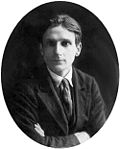 | Edmund Blunden
(1896–1974) | 1966 | 1968 | - English poet, author and critic
| |
| 36 | - | Roy Fuller
(1912–1991) | 1968 | 1973 | - English poet and novelist
| |
| 37 | — | John Wain
(1925–1994) | 1973 | 1978 | | |
| 38 | — | John Jones
(1924–2016) | 1978 | 1983 | - Fellow at Merton College, Oxford, later emeritus; written books on diverse literary topics including Greek tragedy, Wordsworth, Shakespeare, Dostoyevsky, Keats, and one novel
| |
| 39 | - | Peter Levi
(1931–2000) | 1984 | 1989 | - English-born poet, archaeologist, Jesuit priest, travel writer, biographer, academic and prolific reviewer and critic
| |
| 40 |  | Seamus Heaney
(1939–2013) | 1989 | 1994 | | [33] [34] |
| 41 | — | James Fenton
(born 1949) | 1994 | 1999 | - English poet, journalist and literary critic, recipient of Newdigate Prize for sonnet sequence Our Western Furniture
| [35] |
| 42 |  | Paul Muldoon
(born 1951) | 1999 | 2004 | | |
| 43 | — | Christopher Ricks
(born 1933) | 2004 | 2009 | - British literary critic and scholar, professor at Boston University, co-director of the university's Editorial Institute
| |
| — |  | Ruth Padel
(born 1946) | — | — | | |
| 44 | - | Geoffrey Hill
(1932–2016) | 2010 | 2015 | | |
| 45 |  | Simon Armitage
(born 1963) | 2015 | 2019 | | [36] |
| 46 | 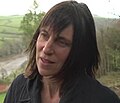 | Alice Oswald
(born 1966) | 2019 | 2023 | | |
| 47 | - | A. E. Stallings (born 1968) | 2023 | - | | |
|


























